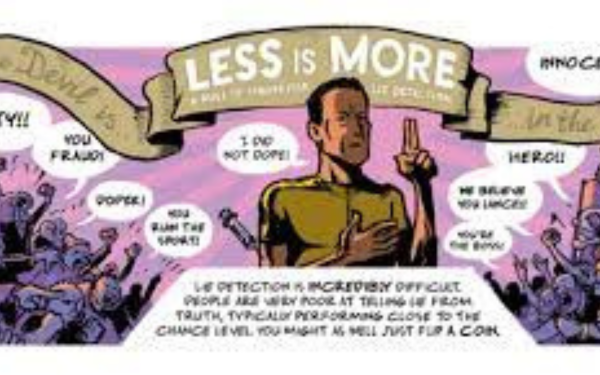The Lie Lab
Researchers from the University of Amsterdam’s Lie Lab, in collaboration with Maastricht University and Tilburg University, are introducing a new lie-detection method. Their findings challenge the belief that we lack the ability to detect deception.
According to the Lie Lab, uncovering a lie is now simpler than ever. Instead of focusing on body language or the persuasiveness of the message, we need to pay attention a story’s richness and detail.
Years of research indicate that we generally struggle to detect deception. We tend to trust people who appear innocent. We have been taught to assume people are good by default. And liars often exploit this belief by gaining our sympathy.
According to the Lie Lab, we need to focus on what someone says rather than solely on body language. Current verbal lie detection methods attempt to combine multiple signals, such as consistency, directness, and plausibility. However, these signals don’t always align and tell the truth.
It’s difficult to accurately judge honesty. And despite training security staff on close to 100 cues that people may be lying, for example, researchers say it’s impossible for anyone to make truthful assessments in a short-time period. Individuals who deceive tend to embellish their tales and are more susceptible to being exposed over time.
Unmasking Liars
In a series of lab experiments, researchers sought to determine whether someone was lying with 100% certainty. They divided a group of students into guilty and innocent parties. The guilty students were told to steal an exam from a locker, while the innocent ones spent half an hour on campus, studying in the library or having coffee with a friend. Both groups later claimed they spent half an hour on campus.
A total of 1,445 people participated in nine studies to evaluate the truthfulness of statements, video transcripts, video interviews, or live interviews. Using all possible cues, participants struggled to differentiate lies from truths, performing just above chance levels.
However, when they focused solely on the amount of detail (place, person, time, location) in the story, they consistently distinguished lies from truths. Here is a video summary of the research.
And apparently, truth tellers provide rich narratives as a result of walking the talk. Liars inflate stories and are more likely to be found out in the long term. Another reason to pause and experience the journey instead of rushing through life. And to listen deeply; focusing not just on words but the harmony and balance between words and actions.


